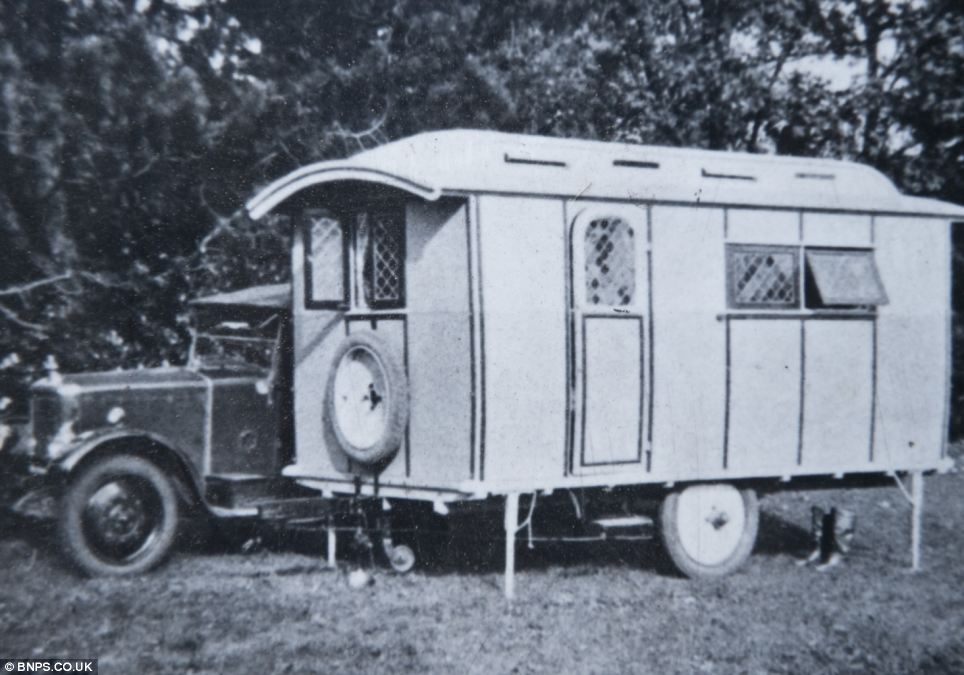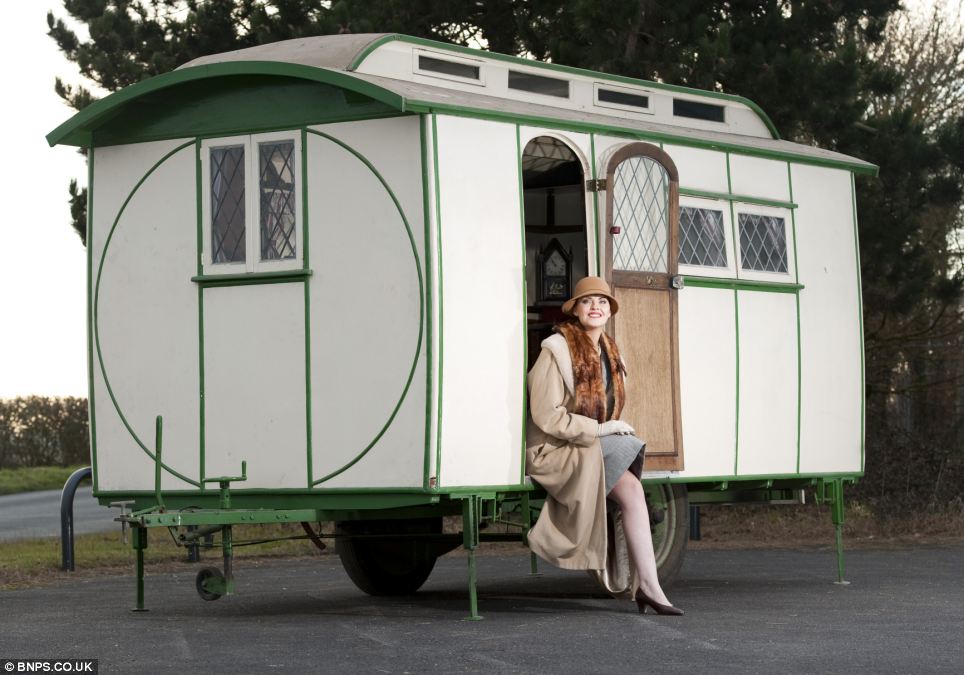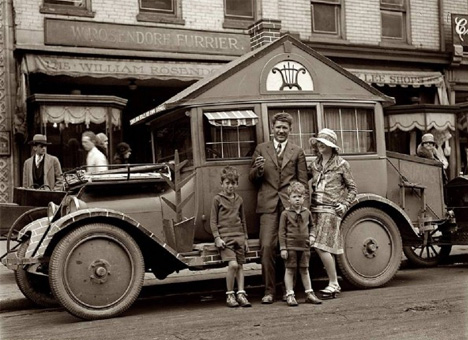Caravan History
1920s

1926 Voyageur , original Photo and as now restored

When the First World War came, the Caravan Club found its membership dwindle as horses were taken for use in the hostilities. It was in this period that a mr.Riley and his son bought a haulage business named Eccles Motor Transport. They built a very basic motorhome on a truck chassis, they received a lot of interest from the motoring press, but the war stopped any further development. It was only after the war that the Riley’s looked at a motor two wheel caravan.
By 1919 they had built a caravan, wich was very primitive, its a prototype for a possible product. By the early 1920s they had sold a caravan and motorhome.
By the mid 1920s, after some lean years ,Eccles Caravans were producing various caravan models - including showman’s vans and mobile offices. When towing these caravans, braking was actuated by the driver amnualy and the driver had to guess when to apply the brake. This system was dropped in favour of the “overrun system” – still used to this day.
As Eccles expanded, other makers came into being, such as Raven, Car Cruiser and Winchester. These were all early, well known manufacturers. But it was still a rich man’s hobby. The original horse drawn caravan concept became obsolete, as the car became more reliable and powerful.
Early caravanners travelled abroad with their caravans and many of these escapades were recorded on film. Eccles capitalised on these stories and published them in the company’s brochures of the time.
Stopping by the roadside or on a farm was the usual thing
to do as official sites didn’t exist. Some owners would stop
on common land or down small back roads in clearings. In the 1920's
the car and caravan were permitted into the Caravan Club’s
membership.
In the 1920’s caravans came with utensils, paraffin stove and
lighting - although 12-volt lights were also being fitted. Wooden
and steel framed chassis were used. The car attachment was a pin
type coupling – with caravans not uncommonly coming unattached!
The 1920’s was the birth of modern caravanning.
